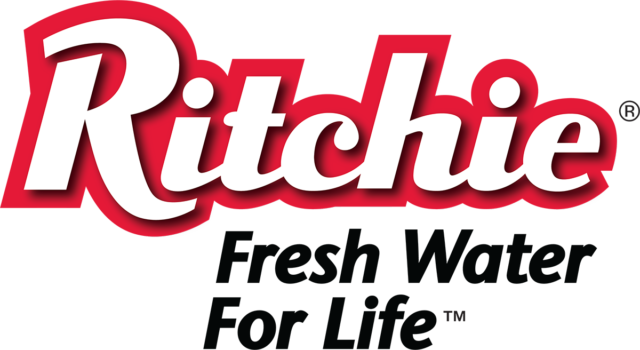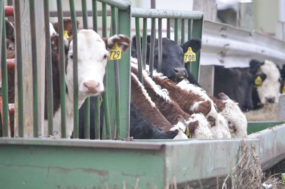The city of San Francisco passed an ordinance requiring grocery stores to document antibiotic use in the meat and poultry they sell on a city website.
The U.S. Food and Drug Administration (FDA) are increasingly regulating the use of antibiotics in livestock production. The fact is, antibiotic resistance is serious and whether or not it can be traced to livestock production, livestock industries are in the crosshairs.
According to Dee Griffin, DVM, West Texas A&M, the FDA will continue tightening regulations of the antibiotics available for use in cow-calf operations. Griffin says, “Soon you’ll need a prescription to buy antibiotics, even those we think of as over the counter, like neomycin or penicillin.”
Graeme McRae, president of NovaVive Inc., says, “Antibiotic resistance is an ever-increasing problem in both humans and animals. In animals, this has primarily resulted from indiscriminate use and overuse of antibiotics as preventative therapy.”
McRae says, “Given the North American regulatory initiatives to phase out the use of certain antibiotics for enhanced food production, in an effort to reduce the risk of microbial resistance, there is a pressing need for alternative therapies.”
Products such as Amplimune that activate the body’s innate immune system to fight infection and disease are one such alternative. Amplimune has been shown to reduce the clinical signs and mortality associated with several economically important diseases in beef cattle such as E. coli K99 diarrhea in neonatal calves.
McRae says, “At a minimum, cattle producers would be wise to consider using Amplimune in their herds as a means of reducing their overall antibiotic burden and production costs.”
A recent study demonstrated that Amplimune administered early at the time of arrival and 10 days after prevented or reduced the incidence and severity of respiratory and gastrointestinal clinical signs in veal calves. This translated into reduced economic losses related to feed consumption and the number of underweight or dead animals.
Don Hubbell, director of the Livestock and Forestry Research Station at Batesville, Arkansas, says, “Scours are a very significant problem in the cow-calf herd. We’ve had to treat 15 percent of newborn calves in one season, up to 45 days after calving.
In severe cases, scours can have a big impact on the lifetime performance of the animal. Those calves are always at the bottom of the list for performance.” Scours is the leading cause of death in calves up to 30 days after they’re born. Typically, preventative measures are more economical than treatment in diseases like scours.
Pathogens such as parasites, viruses and bacteria, which damage the intestinal tract by destroying the intestinal lining, cause the clinical signs of scours. The K99 strain of Escherichia coli (E. coli), the most common source, causes diarrhea and impairs the intestinal lining’s ability to digest and absorb nutrients in milk.
Causes of scours
- Bacterial scours are most common from day 0 to 5, E. coli is the most common cause. Clostridia and salmonella are rare in beef cattle herds.
- Protozoal infectious agents like coccidia (Eimeria spp.) cause symptoms 21 days or longer.
- Viral rotavirus shows up 4 to 14 days of age, and coronavirus 7 to 30 days of age, and are rarely serious, but cause impaired immunity and allow for more serious secondary infections.
o Viruses and parasites aren’t controlled by antibiotics, so a product like Amplimune could be especially advantageous in these cases.
Prevention is a series of interdependent measures
1. Vaccination of dam against E. coli, rotavirus and coronavirus can increase innate immunity in calves via colostrum.
2. Ensure calves get enough colostrum, which is the most important component to the calf’s immune system.
3. Sanitation of calving pens and any equipment between uses.
4. The use of immunotherapeutic technology.
Amplimune is a type of immunotherapeutic technology which, according to McRae, stimulates the host’s immune system, creating a response to infections and malignancies. McRae says, “NovaVive has developed a proprietary mycobacterium cell wall fraction (MCWF) technology that has been developed using a nonpathogenic mycobacterium, Mycobacterium phlei, as the source organism.”
Amplimune should be administered to calves at 1 to 5 days of age. However, it has been administered safely and effectively at various ages and weights by veterinarians and in research using different administration routes.
Research has also shown Amplimune to be effective even under stress situations when cortisol levels are increased. Amplimune has also had a positive effect on weight gain, health and overall reduction in production costs when administered to calves at less than 24 hours of age.
Impressive research results
Research conducted on the efficacy of Amplimune have significant results:
- 90 percent of calves developing E. coli K99 diarrhea survived when treated with Amplimune, and treated calves sold for more than twice the price of untreated control calves.
- In a 75-day, 400-calf study, treated calves cost 18 percent less in treatments compared to controls, and treated calves had a 15 percent advantage in average daily gain (ADG) over controls.
- In a study conducted with Amplimune by the largest Canadian veal operation (based in Quebec) involving 699 calves separated into two groups (MCWF-treated and control):
o Overall, Amplimune (MCWF) reduced the mortality rate by 55 percent compared to controls.
o Reduced the incidence of diarrhea and respiratory clinical signs by 63 percent.
- Consequently, calves receiving MCWF had fewer medical treatments, resulting in an overall reduction in the use of antimicrobials and improved economics (reduced cost of treatments and veterinarian services, higher bodyweight, etc.).
- Research from several beef feed yards indicates a beneficial effect when MCWF is used at the time of arrival, reducing the incidence and clinical signs associated with BRD.
Another area of great potential for Amplimune is prophylactic and therapeutic use in organic farming. Several organic certification agencies have reviewed Amplimune and approved its use in organic operations (and an Organic Materials Review Institute certification is in process).
Given that antibiotics are prohibited in animals raised by organic standards, Amplimune is a valuable tool for organic producers.
Studies demonstrate that Amplimune improves weight gain and overall health, decreases antibiotic usage and increases profits in commercial calf operations. Optimizing the immune system functions early in a calf’s life increases the likelihood the calf will remain healthy, thereby maximizing its production potential. When calves are healthy, energy can be directed to growth instead of fighting disease activity. ![]()
Melissa Beck is a freelance writer based in Prescott, Arkansas. Email Melissa Beck.








